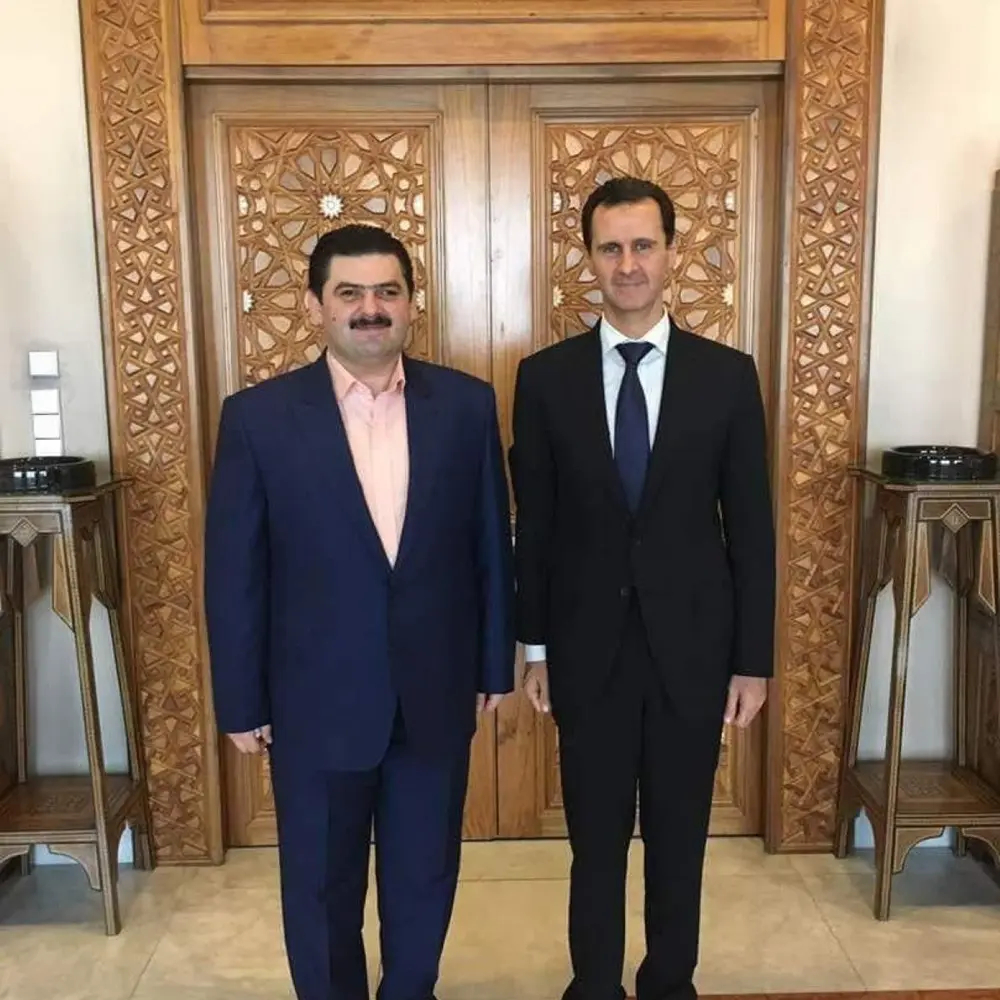
Muhammad Baraa Qaterji, a prominent Syrian businessman with close ties to Bashar al-Assad’s regime and the Iranian-backed Hezbollah, was killed in an alleged Israeli drone strike near the Syrian-Lebanese border on Monday, according to sources. This marks one of the most high-profile assassinations on Syrian territory since the onset of Israel’s war on Gaza on October 7.
Qaterji, 48, was reportedly targeted in Saboura, a region close to Lebanon, as confirmed by an official in an Iran-backed group speaking to the Financial Times. While specific details about the attack remain scarce, reports indicate that the drone strike hit Qaterji’s car, leading to his immediate death.
Qaterji and his brother, Hussam, rose to prominence during the war in Syria, establishing themselves as key war profiteers. They leveraged their influence and connections to broker oil trade deals across enemy lines, notably between the Assad regime, PKK-aligned authority in northeastern Syria, and ISIS. Their actions earned them significant power and wealth, positioning them as monopolistic players in Syria’s oil-based war economy.
The Qaterji brothers’ operations were instrumental in supporting pro-Assad and Iran-backed groups, including Lebanon’s Hezbollah and Iran’s Quds Force, both of which have been active in the Syrian conflict. Their business dealings extended beyond oil, encompassing banking, construction, logistics, and transport. This wide-ranging empire, however, drew international scrutiny, resulting in US sanctions in 2018 for facilitating petroleum shipments and financing the Assad regime.
Despite international sanctions, Qaterji continued to facilitate oil and arms trades, supporting both the Assad regime and Iranian interests in the region. His assassination highlights the ongoing volatility and the dangerous interplay of regional and international forces within Syria.
The motivation behind Qaterji’s assassination remains unclear. While Israeli officials have yet to comment, an anonymous source cited by the Financial Times suggested that Qaterji’s financial and military support for Hezbollah may have prompted the strike. Syrian researcher Haid Haid posited that Israel’s actions might be “a warning to the Assad regime” against further support for Hezbollah amid escalating tensions.
According to the Middle East Eye (MEE), Benjamin Feve, a Lebanon-based analyst, noted skepticism regarding Israel’s involvement. “There is doubt about Israel’s responsibility, especially since high-profile figures in the Syrian government have been dying recently under various circumstances,” Feve stated. He added that while Israel has not typically targeted Syrian businessmen, the method of attack aligns with Israeli assassination techniques.
Qaterji’s assassination follows a pattern of heightened Israeli-Hezbollah hostilities since the war on Gaza began. Israel has conducted several targeted killings of high-ranking Hezbollah commanders in recent weeks. As investigations into Katerji’s death continue, the focus will likely remain on the broader geopolitical ramifications and the potential shifts in alliances and strategies among Syria’s warring factions and their external backers.








